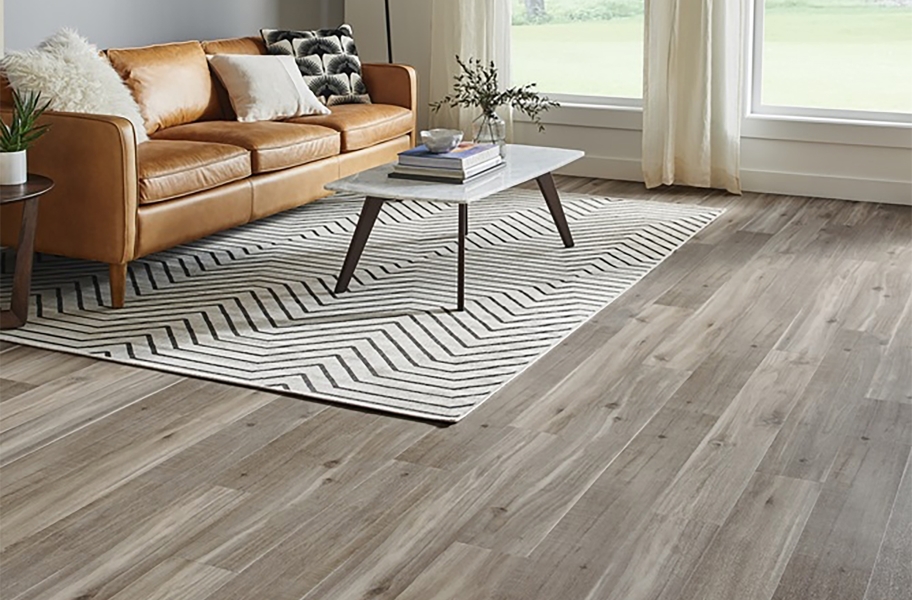
Vinyl Flooring the Eco-Friendly Choice? Exploring Sustainable Options
April 10, 2025When it comes to choosing the perfect flooring for your home or commercial space, durability, style, and affordability are usually at the top of the list. But in recent years, there’s been a significant shift in consumer priorities — sustainability is now a major deciding factor. With eco-conscious living on the rise, many homeowners and designers are re-evaluating popular choices like vinyl flooring. The big question is: Can Vinyl flooring Dubai be considered an eco-friendly option? Let’s explore.
Understanding Vinyl Flooring
Vinyl flooring, particularly luxury vinyl tiles (LVT) and planks (LVP), has surged in popularity thanks to its water resistance, durability, and versatility in design. Made primarily from synthetic materials like polyvinyl chloride (PVC), vinyl floors convincingly mimic natural wood, stone, and ceramic tiles at a fraction of the cost.
However, traditional vinyl flooring has faced criticism over the years for its environmental impact. Manufacturing processes typically involve the use of non-renewable resources and can release harmful chemicals like dioxins if not managed properly. So, at first glance, it may seem like vinyl is far from eco-friendly — but the story doesn’t end there.
Progress in Sustainable Manufacturing
One of the most encouraging trends in the vinyl flooring industry is the shift towards greener manufacturing practices. Many manufacturers are now adopting low-emission production methods, significantly reducing the release of volatile organic compounds (VOCs) into the environment. Low-VOC vinyl products improve indoor air quality, making them safer for both homes and commercial spaces.
Furthermore, advances in technology have led to the development of phthalate-free vinyl flooring. Phthalates, once a common ingredient used to increase flexibility in vinyl, are now being phased out due to health concerns. Eco-conscious brands proudly label their products as phthalate-free, ensuring peace of mind for consumers.
Another significant move towards sustainability is the use of recycled content in vinyl flooring. Some manufacturers are incorporating post-consumer and post-industrial recycled materials into their products, effectively reducing landfill waste and conserving raw materials.
The Longevity Factor: Durable and Low-Maintenance
One of vinyl flooring’s most eco-friendly traits is its exceptional durability. High-quality vinyl floors can last 15–20 years or more with minimal maintenance. Longer-lasting flooring means fewer replacements over time, leading to less waste overall.
Additionally, vinyl floors are low-maintenance, requiring only simple cleaning methods. Unlike some flooring types that need harsh chemical cleaners or frequent refinishing, vinyl can be cleaned with mild, eco-friendly products, further reducing your environmental footprint.
Recycling and End-of-Life Options
A key concern with any flooring material is what happens at the end of its life cycle. Historically, vinyl flooring has posed challenges here, as its composite nature made recycling difficult. However, this is changing.
Today, some manufacturers offer take-back programs, where old vinyl flooring can be returned for recycling into new products. These programs are part of a broader “circular economy” initiative, which aims to minimize waste and keep materials in use for as long as possible.
There’s also growing investment in advanced recycling technologies, capable of breaking down vinyl flooring into its base materials for reuse. While these systems are still developing, they hold promising potential for a more sustainable future.
Certified Green: Look for Eco Labels
For environmentally conscious buyers, certifications can serve as a trusted guide. When shopping for vinyl flooring, look for reputable eco-labels such as:
FloorScore® Certification: Indicates the product meets strict indoor air quality standards.
GREENGUARD Certification: Verifies low chemical emissions.
Environmental Product Declarations (EPDs): Provide transparent data on a product’s environmental impact.
These certifications reflect a manufacturer’s commitment to sustainability and responsible production.
Vinyl Alternatives: Weighing Your Options
While vinyl flooring is making strides towards sustainability, it’s important to consider alternatives if your priority is a completely natural material. Options like bamboo, cork, reclaimed wood, and linoleum offer renewable, biodegradable solutions. However, they may come with higher costs or maintenance demands.
The choice ultimately depends on your specific needs, design goals, and sustainability values. Vinyl flooring provides a practical middle ground — offering durability, affordability, and increasingly eco-friendly options for those who want balance without compromising on style.
Final Verdict: Is Vinyl Flooring an Eco-Friendly Choice?
Vinyl flooring Dubai is not traditionally seen as the greenest option on the market. However, thanks to technological innovations, responsible manufacturing, and the integration of recycled materials, it has become far more sustainable than ever before.
If you’re looking for a flooring solution that blends durability, design flexibility, and evolving eco-friendly features, vinyl flooring deserves a spot on your shortlist. By choosing certified products, supporting brands with recycling programs, and maintaining your flooring well, you can enjoy the benefits of vinyl while minimizing its environmental impact.
In today’s market, where style meets sustainability, vinyl flooring is steadily paving its way toward a greener future







